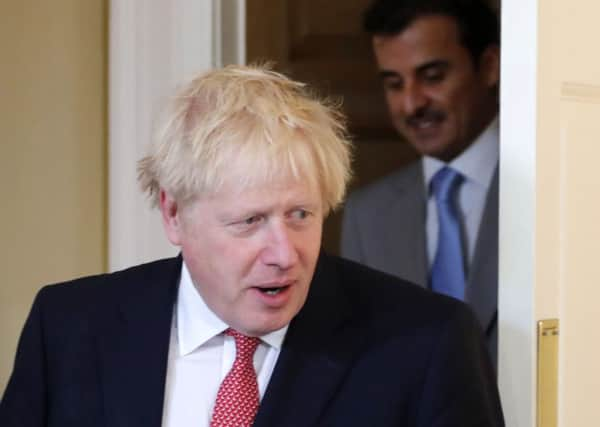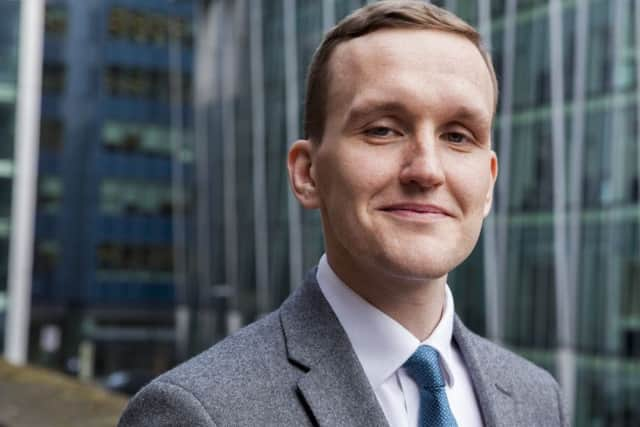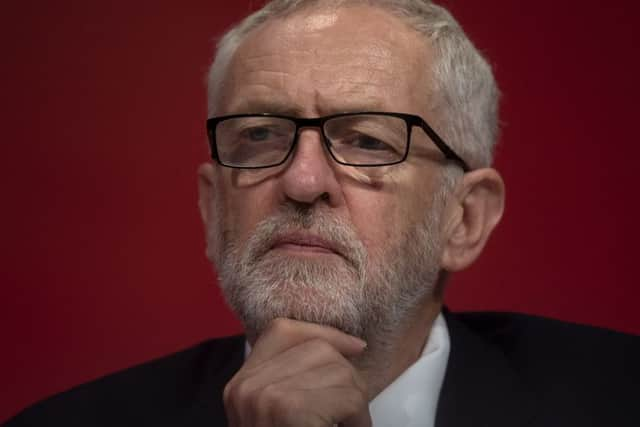Meet the seven million members of the Don’t Know Party who will decide the next election – Tom Lees


It’s unsustainable for Boris Johnson and the Government not to have a majority in Parliament and for Jeremy Corbyn, as Leader of the Opposition, to indefinitely refuse to hold an election.
Advertisement
Hide AdAdvertisement
Hide AdKnowing we are heading for a general election, the next question is who will win it?


There is a keen amount of attention paid to an alleged ‘Boris bounce’ that the Conservatives have seen in the polling since Johnson became the Prime Minister.
It is true that if you look at the average of the most recent national polls the Conservatives have seen a boost of nine per cent in the polls, putting them eight per cent ahead of the Labour Party, whose popularity has remained broadly the same since the end of July.
Advertisement
Hide AdAdvertisement
Hide AdThis has led a number of commentators to suggest that the Conservative Party are on track for a general election win.


What people fail to take into account when looking at these polls is the large amount of ‘invisible’ voters who are excluded from the results.
Unless you are a political anorak, you may not know about the real third party of British politics: the Don’t Know Party. They represent the sizeable chunk of the public who have not yet made their mind up and will not be doing so until much closer to the election.
Advertisement
Hide AdAdvertisement
Hide AdLooking at the average of the most recent polls, that equates to around seven million voters. That’s three times how many votes the Liberal Democrats received in the last election and seven times the vote share of the Scottish National Party.
The other chunk of invisible voters are those who say they are unlikely to vote or will not bother voting in an upcoming general election. There are six million people that fall into this camp.
Added together it means there are 13 million voters missing from the polls – more than the number of votes cast for the Labour in the 2017 election when Theresa May lost her Commons majority. It is these invisible voters who will choose our next Prime Minister and decide the outcome of the next election.
One of the factors that helped to nudge the Leave campaign into winning position back in 2016 was their ability to better engage with this group of voters.
Advertisement
Hide AdAdvertisement
Hide AdDominic Cummings, the director of Vote Leave and now Boris Johnson’s chief adviser, held back the majority of their advertising spending until the last few weeks of that campaign. Targeting undecided voters at a crucial time when they are making their decision of who to back.
A study by the highly respected NatCen Social Research organisation shortly after the referendum showed that people who traditionally did not vote, but were persuaded to in 2016, were far more likely to vote Leave.
The Leave campaign achieved a 0.8 per cent better turnout of ‘non-voters’ than Remain. Although this percentage may sound small it equated to 270,000 more votes in favour of Brexit – a good-sized chunk.
If we looked at constituency majorities across the country, there are around 40 seats that would change hands based on a 0.8 per cent boost to the party in second place. Enough to completely change the dynamics of parliament.
Advertisement
Hide AdAdvertisement
Hide AdGiven how fine the margins are likely to be between victory and defeat, the party that is best able to engage with the 13 million invisible voters will probably hold the keys to Downing Street after polling day.
Will Mr Cummings be able to transfer his referendum winning formula to a general election? Or, perhaps, the other parties have learnt from what happened three years ago and will give him a good run for his money?
Tom Lees is a political consultant and managing director of corporate communications firm Bradshaw Advisory.